Can Dogs Eat Eggs Scrambled? Vet-Approved Guide to This Nutritious Treat
- 15 Apr 2025 10:09
Eggs are a nutritional powerhouse for humans, packed with protein, vitamins, and minerals. Many dog owners, looking for healthy and appealing additions to their pet's diet or simple homemade treats, naturally wonder about sharing this common breakfast staple. Specifically, the question often arises: can dogs eat eggs scrambled? The great news is that **yes**, plain scrambled eggs are generally safe and can be highly beneficial for most dogs when prepared correctly and offered in moderation. However, the *way* they are prepared is absolutely critical, as common human additions can quickly turn this healthy food into a dangerous one.
This comprehensive guide, based on veterinary nutritional principles and adhering to E-E-A-T (Expertise, Authoritativeness, Trustworthiness) standards, will delve into the benefits of scrambled eggs for dogs, the crucial risks associated with improper preparation, how to cook them safely, appropriate serving sizes, and why they can be a fantastic part of a balanced approach to canine nutrition when done right.

What are Scrambled Eggs?
Scrambled eggs are simply eggs that have had the yolks and whites whisked together and then cooked, typically in a pan, while being stirred gently to create soft curds. For humans, this often involves adding milk or cream for texture, butter or oil for cooking, and seasonings like salt and pepper for flavor. It's these common human additions that pose problems for dogs.
When we discuss scrambled eggs for dogs, we are ideally referring to eggs prepared **plain**, without these extra ingredients.
Are Scrambled Eggs Safe for Dogs? The Simple Answer & Nuances
Yes, plain, thoroughly cooked scrambled eggs are **safe for most dogs**. Eggs themselves are not toxic to dogs. They are a whole food source containing many beneficial nutrients.
However, the safety hinges on several important factors:
Preparation Method:** This is paramount. Eggs must be cooked plain.
Cooking Thoroughness:** Eggs must be fully cooked to eliminate bacterial risks.
Moderation:** Eggs are nutrient-dense and should be fed as a treat or supplement, not a primary meal, to avoid unbalancing the diet or providing excess calories/fat.
Individual Factors:** Some dogs may have specific health conditions (like pancreatitis history or certain allergies) where even plain eggs might require caution or avoidance.
Allergies:** While not as common as chicken or beef allergies, some dogs can be allergic to eggs.
So, while the basic answer is yes, understanding the "how" and "how much" is essential for ensuring scrambled eggs remain a healthy addition, not a hazard.
Nutritional Benefits of Plain Scrambled Eggs for Dogs
Plain scrambled eggs are more than just safe; they offer a wealth of nutritional benefits for dogs, making them an excellent supplemental food or high-value treat:
High-Quality Protein Powerhouse: Eggs are considered a "complete" protein source, meaning they contain all the essential amino acids dogs need for building and repairing muscles and tissues, supporting immune function, and maintaining healthy skin and coat.
Essential Fatty Acids: Egg yolks are rich in fatty acids, including omega-6s and some omega-3s, which contribute to healthy skin, a glossy coat, and overall cellular health.
Vital Vitamins: Scrambled eggs provide numerous vitamins crucial for canine health:
Vitamin A: Supports vision, skin health, immune function, and growth.
Vitamin D: Essential for calcium and phosphorus absorption, crucial for bone health.
Vitamin E: A powerful antioxidant protecting cells from damage.
Vitamin K: Important for blood clotting.
B Vitamins (Riboflavin, B12, Folate): Critical for energy metabolism, nervous system function, red blood cell production, and enzyme function.
Important Minerals: They are a good source of:
Iron: Essential for carrying oxygen in the blood (preventing anemia).
Selenium: A key antioxidant mineral supporting immune and thyroid health.
Phosphorus: Works with calcium for bone and teeth health.
Highly Digestible: Cooked eggs are generally easy for dogs to digest, making them suitable even for some dogs with sensitive stomachs (when introduced carefully).
Palatability: Most dogs find the taste and smell of scrambled eggs highly appealing.
These impressive benefits of scrambled eggs for dogs highlight why plain preparation is key to unlocking their potential as a healthy treat.
The Dangers Lurking: Why *How* You Cook Matters Most!
This is where scrambled eggs can go from healthy treat to harmful hazard. Common ingredients added during human preparation are often unsuitable or even toxic for dogs:
1. Butter, Oil, and Excessive Fat
Risk: Adding butter or cooking oil significantly increases the fat content. High-fat meals are a primary trigger for **pancreatitis** in dogs – a painful, potentially fatal inflammation of the pancreas requiring emergency veterinary care.
Symptoms: Vomiting, diarrhea, severe abdominal pain, lethargy, loss of appetite.
Alternative: Cook eggs in a non-stick pan without fat, or use a minuscule amount of dog-safe oil (like coconut oil, very sparingly) only if necessary, or simply scramble with a little water.
2. Salt (Sodium Chloride)
Risk: Dogs have much lower sodium needs than humans. Added salt can lead to increased thirst/urination, dehydration, vomiting, diarrhea, and high blood pressure. Large amounts can cause potentially lethal **sodium ion poisoning** (neurological signs like tremors, seizures).
Alternative: Absolutely no added salt.
3. Milk, Cream, or Cheese (Dairy)
Risk: Many dogs are **lactose intolerant** as adults, lacking sufficient lactase enzyme to break down milk sugars. This can cause gas, bloating, diarrhea, and abdominal discomfort. Cheese also adds significant fat and sodium.
Alternative: Use a splash of water instead of milk for fluffier eggs, or simply scramble the eggs plain. Avoid cheese.
4. Onions, Garlic, Chives (Allium Family) - TOXIC!
Risk: These ingredients, often added to human scrambles or omelets (sometimes in powder form), are **highly toxic** to dogs. They damage red blood cells, causing hemolytic anemia, which can be severe or fatal. Symptoms (lethargy, weakness, pale gums, collapse) may not appear for several days.
Alternative: Never add any member of the Allium family to your dog's eggs.
5. Pepper and Other Spices
Risk: Black pepper and many other spices can irritate a dog's digestive tract, causing stomach upset or diarrhea. Spicy additions (like chili flakes) are definite no-gos.
Alternative: Keep it plain.
Understanding these **risks of scrambled eggs for dogs** prepared improperly is crucial for safety.
Raw vs. Cooked Eggs: Why Scrambled (Cooked) is Safer
Some proponents advocate for raw eggs, but veterinarians generally recommend cooking eggs for dogs due to two primary risks associated with raw consumption:
Salmonella and E. coli Risk: Raw eggs can carry harmful bacteria like Salmonella or E. coli. While dogs might have somewhat more robust digestive systems than humans, they can still become ill from these pathogens, suffering vomiting, diarrhea, fever, and lethargy. Importantly, infected dogs can shed these bacteria in their feces, posing a **zoonotic risk** (transmission to humans) in the household, especially concerning for children, the elderly, or immunocompromised individuals. Cooking eggs thoroughly kills these bacteria.
Biotin Deficiency (Avidin Risk): Raw egg whites contain a protein called **avidin**. Avidin binds strongly to biotin (a crucial B vitamin) in the digestive tract, preventing its absorption. While it would take consuming a large amount of *only raw egg whites* over a prolonged period to cause a true biotin deficiency (symptoms include skin/coat problems, developmental issues), cooking denatures avidin, eliminating this risk entirely. Egg yolks are rich in biotin, somewhat counteracting the effect if whole raw eggs are fed, but the risk isn't zero, and the Salmonella risk remains.
Therefore, **thoroughly cooked eggs, such as plain scrambled eggs**, are the safest way to offer this nutritious food to your dog, eliminating both bacterial and avidin risks.
How to Safely Prepare Scrambled Eggs for Your Dog: Step-by-Step
Preparing safe scrambled eggs for your dog is simple:
Crack the Egg(s): Use 1-2 fresh eggs depending on your dog's size and treat allowance.
Whisk Lightly: Beat the eggs slightly in a bowl. **Do NOT add milk, salt, pepper, or any seasonings.** A tiny splash of water is okay if desired for texture.
Prepare the Pan: Use a clean non-stick skillet. Avoid using butter or oil. If needed for sticking, use a *tiny* wipe of dog-safe oil (like coconut) or simply rely on the non-stick surface or the water added to the eggs.
Cook Thoroughly: Pour the eggs into the pan over medium heat. Stir gently as they cook to form soft curds. Ensure the eggs are **cooked all the way through** – no runny or translucent parts should remain. This kills potential bacteria.
Cool Completely: Remove the plain scrambled eggs from the pan and let them cool down fully before serving to prevent burns.
Chop (Optional): You can chop the cooled eggs into smaller, bite-sized pieces for easier eating or use as training treats.
Serve Plain: Offer the plain, cooled scrambled eggs as is, or mix a small amount with their regular food.
This simple process ensures you provide **plain scrambled eggs for dogs**, maximizing benefits and minimizing risks.
Serving Size: How Much Scrambled Egg Can Dogs Eat?
Moderation is essential, as eggs are nutrient-dense and add calories.
Treat, Not Meal: Scrambled eggs should be considered a treat or supplement, not a replacement for their balanced dog food.
10% Rule: All treats combined, including eggs, should ideally make up no more than 10% of your dog's total daily caloric intake. An average large egg contains around 70-80 calories.
Frequency: Offering scrambled egg a few times a week is generally fine, rather than daily, to maintain dietary balance. The question "can dogs eat scrambled eggs everyday?" is generally answered with no, due to balance and potential excess nutrients like Vitamin A if combined with other rich sources.
Portion Size Examples (Plain Cooked Egg):**Adjust based on your dog's size, activity level, weight goals, and overall diet.
Toy/Small Dogs: A few small bites (maybe 1/4 of an egg).
Medium Dogs: About half an egg to one full egg.
Large/Giant Dogs: One to one-and-a-half eggs.
Consider Other Treats: Factor in any other treats given throughout the day.
Introduce Slowly: Start with a smaller amount to ensure good tolerance.
Can Puppies Eat Scrambled Eggs?
Yes, plain, fully cooked scrambled eggs can be a great addition for puppies too!
Benefits: Excellent source of protein and amino acids for growth, plus vitamins and minerals. Easy to chew and digest.
Moderation: Puppies have sensitive digestive systems and specific nutritional needs for growth. Eggs should be an even smaller portion of their diet than for adults. Stick to tiny amounts as a treat.
Introduction: Introduce very gradually after they are weaned and eating solid food well.
Consult Vet: Always best to check with your veterinarian before adding new foods to a growing puppy's diet to ensure it complements their specific nutritional plan.
Scrambled Eggs for Sick Dogs? (Consult Your Vet!)
Plain scrambled eggs are often recommended by veterinarians as part of a **bland diet** for dogs recovering from mild gastrointestinal upset (like vomiting or diarrhea), *once approved by the vet*.
Why?:** They are highly digestible, palatable (encouraging eating), and provide good protein without being overly harsh on the stomach.
Preparation:** Must be absolutely plain (no fat, salt, etc.). Often paired with plain boiled white rice or boiled lean chicken.
**CRITICAL:** Always consult your veterinarian before feeding a sick dog.** Underlying causes need diagnosis, and specific dietary recommendations may vary. Do not self-prescribe a bland diet without veterinary guidance.
Table: Safe vs. Unsafe Scrambled Egg Preparation for Dogs
| Preparation Method / Ingredient | Safety Status for Dogs | Key Risks |
| Plain Scrambled Eggs (No Fat/Seasonings) | SAFE (in moderation) | Overfeeding (calories, imbalance); potential allergy. |
| Eggs Cooked with Butter/Oil | UNSAFE - AVOID | High Fat -> Pancreatitis risk, GI upset, obesity. |
| Eggs Cooked with Salt/Pepper/Spices | UNSAFE - AVOID | High Sodium risk (salt); GI irritation (spices). |
| Eggs Cooked with Milk/Cheese | UNSAFE / NOT RECOMMENDED | Lactose intolerance (diarrhea, gas); added fat/sodium (cheese). |
| Eggs Cooked with Onion/Garlic/Chives | DANGEROUS - TOXIC! | Damages red blood cells, causes anemia. |
| Raw Eggs | Not Recommended | Salmonella/E. coli risk (dog & human); Biotin deficiency risk (avidin). |
Need Quick Pet Health & Nutrition Advice? PettureX is Here!
Navigating the world of safe human foods for pets can bring up many questions. For quick access to information and supportive AI tools, consider the PettureX App.
PettureX offers helpful features:
Food Safety Checker: Use tools within the app to get general safety information on common human foods like eggs.
AI Symptom Analysis: If your pet develops concerning symptoms after eating something new, input the details for preliminary AI-driven insights.
24/7 AI Vet Consultation: Get immediate answers to questions like, "How much scrambled egg is okay for my puppy?" or seek guidance on managing minor health issues anytime.
PettureX provides valuable, instant support. Remember, however, that it offers preliminary guidance and **cannot replace professional veterinary diagnosis, treatment, or personalized nutritional advice.** Always consult your local veterinarian for medical concerns and specific dietary recommendations.
Conclusion: Scrambled Eggs - A Great Treat When Plain & Portioned
So, let's circle back to the main question: can dogs eat eggs scrambled? The answer is a confident **yes**, provided they are cooked thoroughly and served completely plain, without any added fats, salt, dairy, or harmful seasonings like onion or garlic.
Key Takeaways:
Benefits: Plain scrambled eggs are a fantastic source of high-quality protein, essential amino acids, vitamins, and minerals.
Safety = Plain Preparation: Cooking thoroughly without harmful additives is non-negotiable. Avoid butter, oil, salt, pepper, milk, cheese, onions, and garlic.
Moderation is Essential: Feed as a treat or supplement (max 10% of daily calories), not a meal replacement, to maintain dietary balance and avoid excess calories.
Cooked is Safest: Avoid raw eggs due to Salmonella and avidin risks.
Great for Most Dogs: Suitable for puppies (tiny amounts) and can be part of a vet-approved bland diet for sick dogs.
By understanding how to prepare them safely and offering them in appropriate portions, plain scrambled eggs can be a delicious, nutritious, and highly motivating treat that contributes positively to your dog's well-being.
Related

Can Dogs Eat Gingerbread? Vet Explains the Holiday Hazard (Nutmeg Alert!)
- 15 May 2025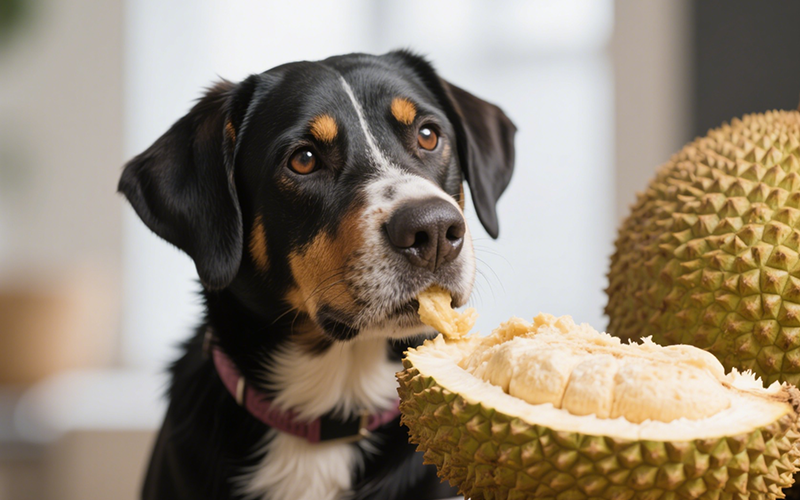
Can Dogs Eat Jackfruit? Vet Explains Potential Risks & Safe Preparation
- 15 Apr 2025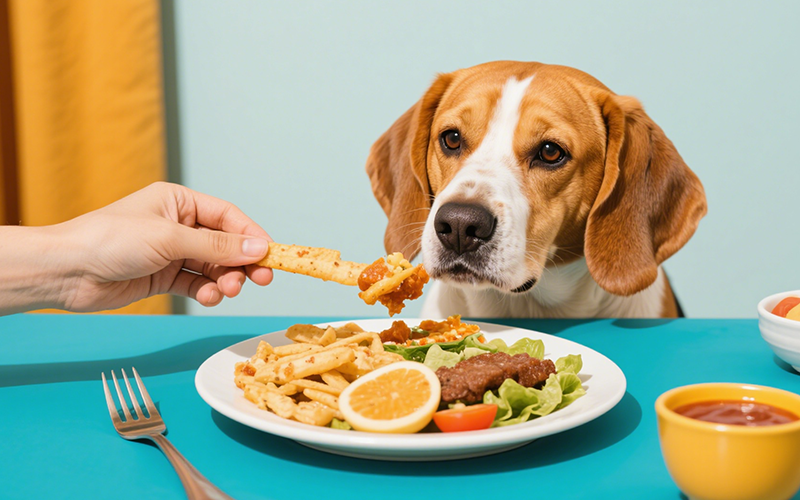
Can Dogs Eat Human Food? A Vet's Guide to Safe Sharing vs. Dangerous Scraps
- 15 Apr 2025
Can Dogs Eat Hazelnuts? Vet Explains Potential Risks & Safe Alternatives
- 15 Apr 2025
Can Dogs Eat Green Olives? Vet Explains Salty Risks & Pit Dangers!
- 15 Apr 2025
Can Dogs Eat Goldfish Crackers? Vet Explains Why This Snack is Unsafe!
- 15 Apr 2025
Can Dogs Eat Garlic Powder? The TOXIC Truth Vets Need You to Know!
- 15 Apr 2025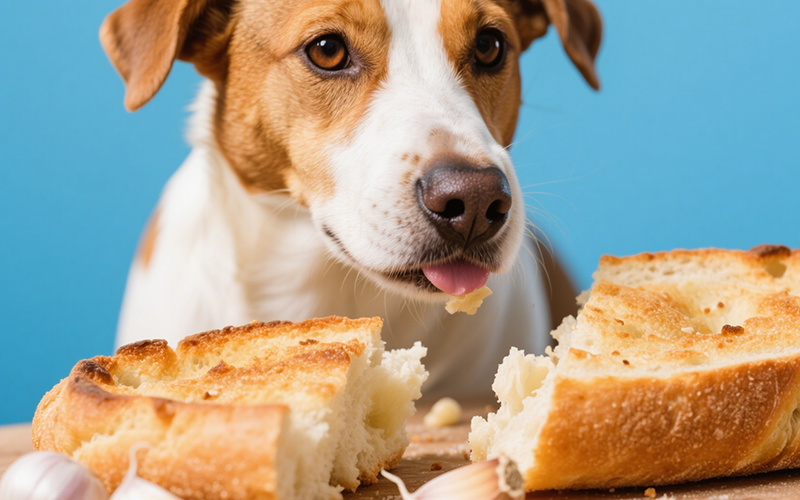
Can Dogs Eat Garlic Bread? Vet Explains the Toxic Dangers!
- 15 Apr 2025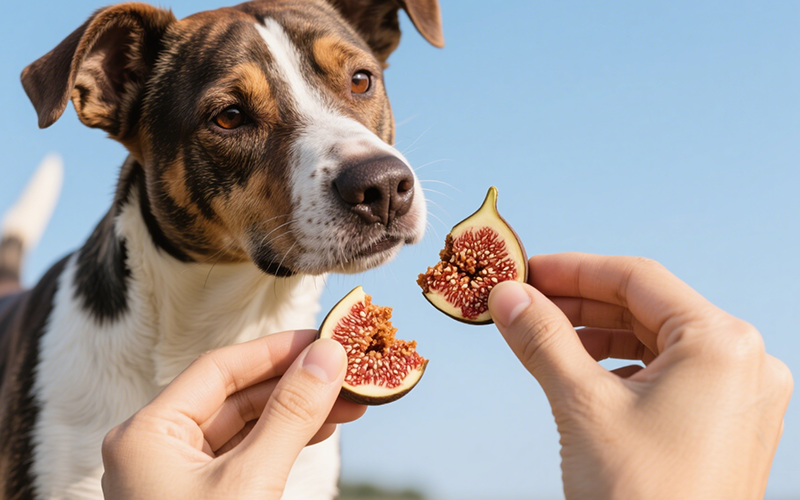
Can Dogs Eat Fig Newtons? The Sugary Trap Vets Warn Against!
- 15 Apr 2025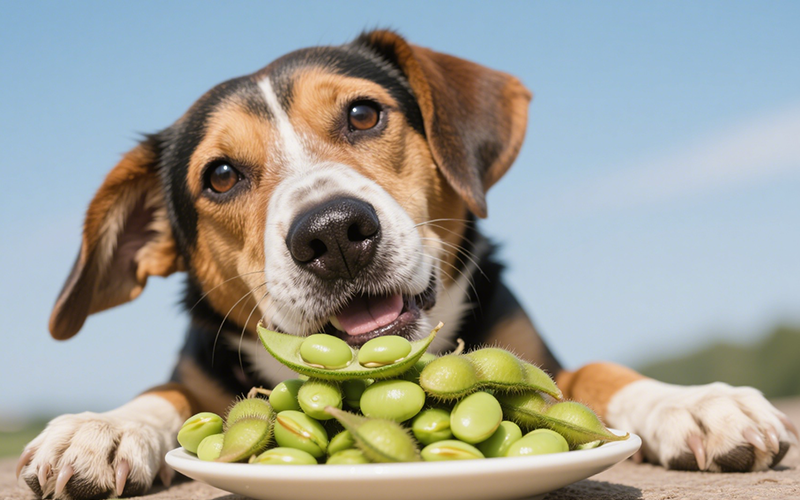
Can Dogs Eat Edamame Beans? Vet Explains Benefits, Risks & Safe Serving
- 14 Apr 2025
